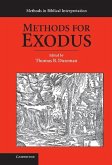Henry Sidgwick's "The Methods of Ethics" (1874) is a seminal work in moral philosophy that rigorously examines the foundations of ethical theory. Employing a systematic and analytical literary style, Sidgwick engages with utilitarianism, hedonism, and egoism, presenting a critical exploration of their implications for moral reasoning. His methodical approach juxtaposes diverse ethical frameworks, culminating in a nuanced discussion of moral intuition and the 'dualism of practical reason.' This text serves as a cornerstone for subsequent debates in ethics, epitomizing the Victorian intellectual milieu that sought to reconcile traditional moral values with emerging scientific paradigms. A prominent philosopher and a member of the moral sciences faculty at Cambridge, Sidgwick's background in both classical literature and economics profoundly influenced his ethical inquiries. His commitment to rigorous philosophical investigation is evident in his efforts to bridge the gap between empirical analysis and ethical theory. Sidgwick was deeply concerned with the implications of ethical discourse in society, prompting him to explore the complex interplay between individual moral duties and collective welfare. "The Methods of Ethics" is an essential read for anyone interested in the evolution of ethical thought and its relevance to contemporary moral dilemmas. Sidgwick's meticulous articulation of ethical methods facilitates a deeper understanding of moral philosophy and its practical applications. This book is not merely theoretical; it challenges readers to contemplate their own moral beliefs and the underpinnings of ethical decision-making.
Dieser Download kann aus rechtlichen Gründen nur mit Rechnungsadresse in A, B, BG, CY, CZ, D, DK, EW, E, FIN, F, GR, H, IRL, I, LT, L, LR, M, NL, PL, P, R, S, SLO, SK ausgeliefert werden.









